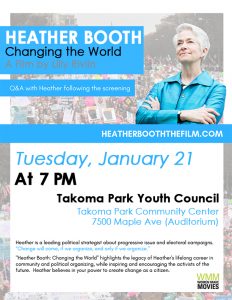The City Clerk issued this public notice in the April 24 issue of the Takoma Insider:
Notice Of Order Temporarily Suspending Legal Time Requirements Regarding MD Public Information Act Timeline:
The legal time requirements for the City’s response to requests under the Maryland Public Information Act are temporarily suspended until thirty (30) days have elapsed from the expiration of the State of Emergency and public health catastrophe, as determined by Governor Hogan. Maryland’s Public Information Act ordinarily requires the City to respond to requests for public records within ten (10) days, if there are no responsive records, or thirty (30) days, if responsive records exist. These time requirements are suspended. Link to signed notice.
Publication of the notice has caused concerns that the City will no longer be responding to questions or requests for information. This is not the case. The information below is being provided to clarify the City’s intentions.
Information From the Maryland Attorney General’s Open Government Website:
What is the Public Information Act? Maryland’s Public Information Act (“PIA”) gives the public the right to access government records without unnecessary cost and delay.
The PIA grants you the right to review the available records that are disclosable and to obtain copies of those records. It does not require an agency to answer informational questions or to create a record to satisfy your request.
What is a public record? A public record is defined as the original or copy of any documentary material in any form created or received by an agency in connection with the transaction of public business. Included in this definition are written materials, books, photographs, photocopies, firms, microfilms, records, tapes, computerized records, maps, drawings and other materials.
City of Takoma Park staff members routinely respond to questions and requests for information. This has not changed during the pandemic. Additionally, if requests for records are received, staff continues to provide records that are accessible under the circumstances.
Please be assured that PIA requests will be responded to during the current health crisis. The notice that was published is regarding the normal 30 day requirement within which governments are required to respond to such requests. Given the current crisis, meeting the 30 days will not always be feasible. This course of action has been recommended by the Maryland Municipal Attorneys Association which took the lead on addressing the issue with the Governor’s Office. The City’s notice was submitted to the Governor’s Office of Legal Counsel and approved by it before it was signed and posted. Please email the City Clerk with any questions.



 9:30 pm. The classes cover topics such as patrol, traffic enforcement, use of force, criminal investigations, canine, firearms, crisis negotiation, etc. The presentations are slide show/lecture style and will be given by officers, detectives, and civilians of the Takoma Park Police Department. There will also be multiple opportunities for hands-on learning through equipment demonstrations, practical scenarios, field trips and ride-along with patrol officers.
9:30 pm. The classes cover topics such as patrol, traffic enforcement, use of force, criminal investigations, canine, firearms, crisis negotiation, etc. The presentations are slide show/lecture style and will be given by officers, detectives, and civilians of the Takoma Park Police Department. There will also be multiple opportunities for hands-on learning through equipment demonstrations, practical scenarios, field trips and ride-along with patrol officers.